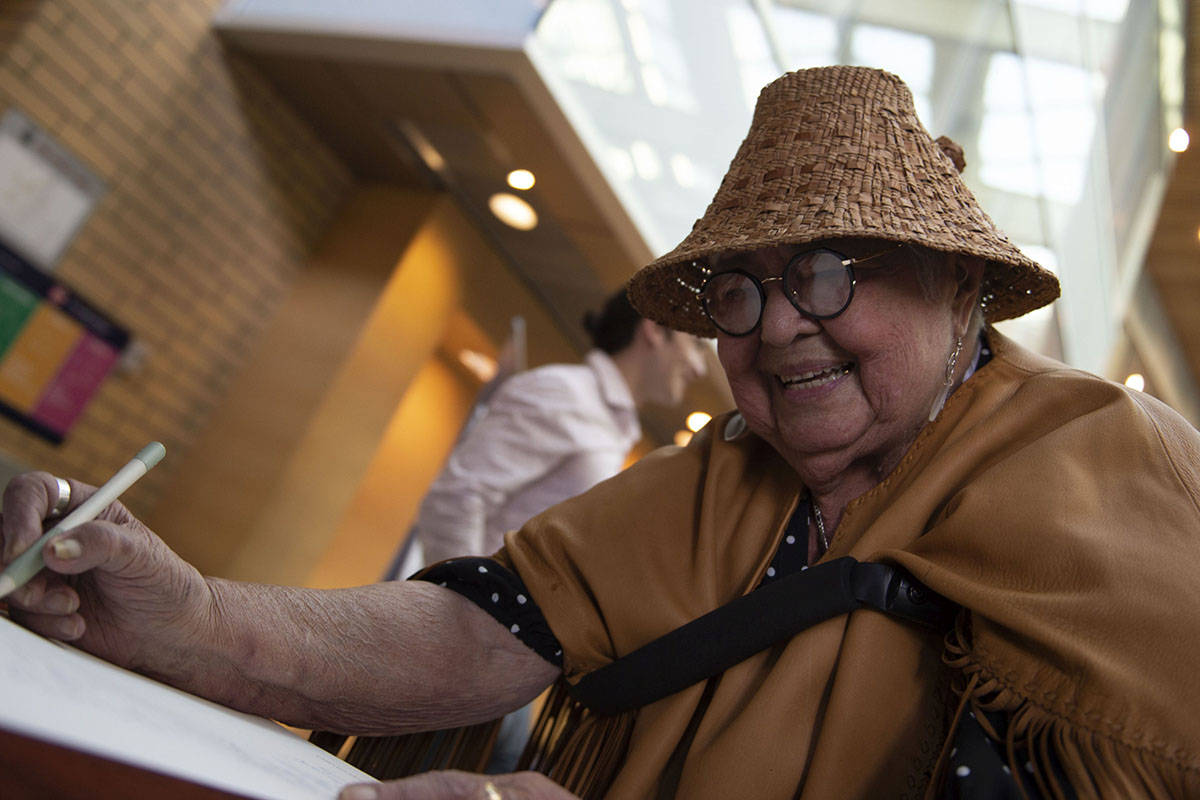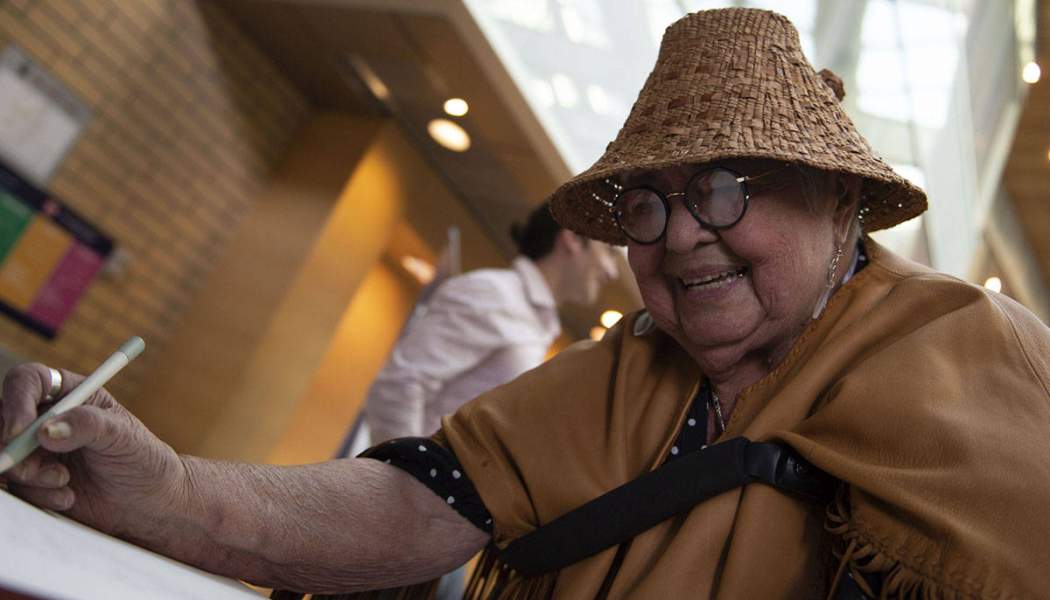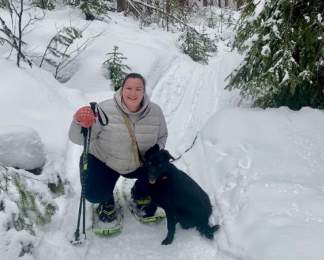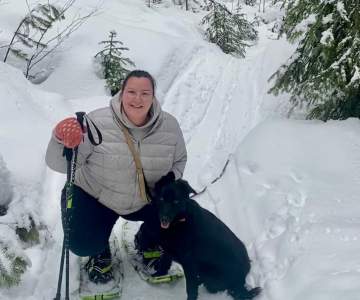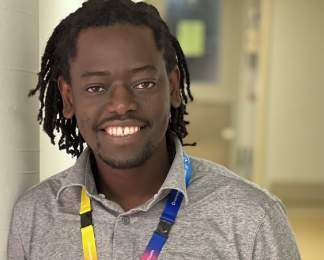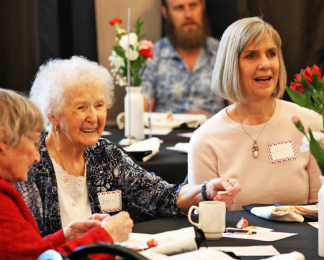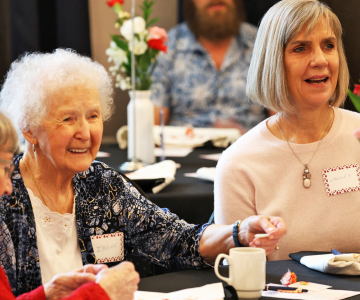Think volunteering is just a nice thing to do for others? Think again.
A growing body of research has pointed to the social, emotional, and even physical health benefits of contributing your time and energy to your community as you age.
Benefits to older adults
A study published in the The Gerontologist journal found that volunteers reported significant improvements in their mental health, along with other benefits ranging from a greater feeling of productivity, increased social activity, and an overall sense that their life had improved.
Research shows that social interaction supports overall physical, mental and emotional health and helps maintain brain health. People with strong social networks say they feel happier and more supported. Older adults also report increased levels of satisfaction and overall improved quality of life when they are engaged with their communities and feeling connected. Many find this through volunteering and staying active and engaged in their communities.
How communities benefit from older adults
It is hard to imagine our country without volunteers. Volunteers are active in youth clubs, arts programs, helping newcomers settle into their communities, visiting elderly people, and providing aid and comfort in hospitals. Without them, Canadian communities would be very different. According to a report on volunteering, one quarter of all volunteers in Canada are those 65 and older.
What are they giving? In addition to the unique skills each person possesses, older adults offer their time, their career and life experience, and their wisdom and perspective
After her retirement as a registered nurse in Vernon, Jessie Nyberg, a Shuswap Elder from the Canoe Creek Band, began working as a volunteer at the Vernon Friendship Centre. She advocated for improved diabetes services and better access to early childhood development programs in her community.
Today, Jessie is an Elder advisor on a UBC research grant which explores how Indigenous people experiencing diabetes and obesity access care. She also raises awareness of B.C.’s Head Start pre-school programs, particularly among Indigenous people in her community. And she sits on a consortium that represents programs that serve Indigenous children with disabilities.
As the seniors navigator for the Golden Community Resource Society, Mickey Balas has a wealth of knowledge about resources in her community and is a tremendous advocate for older adults in the Golden area.
They offer the priceless ability to provide perspective and guidance on an infinite range of topics and activities. Seniors are able to devote the required time and effort to see projects through from start to finish. Because they are often no longer constrained by a need to conform to the opinion of others, many seniors tend to be candid and direct in sharing their opinions. Seniors realize their needs can be intergenerational and what benefits them will also benefit the rest of society.”
Mickey Balas, seniors navigator
“In my experience, communities benefit from the participation of seniors in many components of our society,” says Mickey. “Seniors bring and share a wealth of information and experience gained throughout their lifetimes.
Barriers to older adults giving back in the community
For senior citizens, the pandemic brings another blow: their usual volunteering activities have been put on hold because of the risk they face if they contract the virus.
Volunteers are important partners in health-care, says Kristin Cleary, volunteer coordinator at Interior Health.
“The majority of our long time volunteers are older adults and are most at risk for COVID-19. So having to suspend volunteer services has been really hard on both the volunteers as well as the clients who receive that time with them. We are having to adjust and look at creative new ways to help out our community.”
Kristin Cleary, volunteer coordinator
Stigma and stereotypical attitudes towards aging can also be a barrier to seniors participating in their communities.
“Some older adults are influenced by the misconception of their value in their later years, for example: coaching with sports that they previously played or in which they were once involved,” says geriatric nurse specialist Shannon Paul-Jost. “Others feel frustrated at the attitudes of others present within their community. There are circumstances where these judgments do not align with their lived experience and older adults may avoid contributing to groups, as they may not feel their contributions are understood and appreciated.”
Older adults have a wealth of lived experience and can contribute to their communities by shaping conversations to be more inclusive and age-friendly, which is a unique perspective that can only be had through years of living, says Shannon.
“Let’s challenge our own thoughts and attitudes about aging. When it comes to community contribution and collaboration, I believe we all benefit from being more open-minded, compassionate and thoughtful.”
Featured image photo courtesy UBC Okanagan.
Caption: Jessie Nyberg signs a Truth and Reconciliation commitments at a special UBCO ceremony - just one example of the tremendous contributions of this active Elder and others like her.
